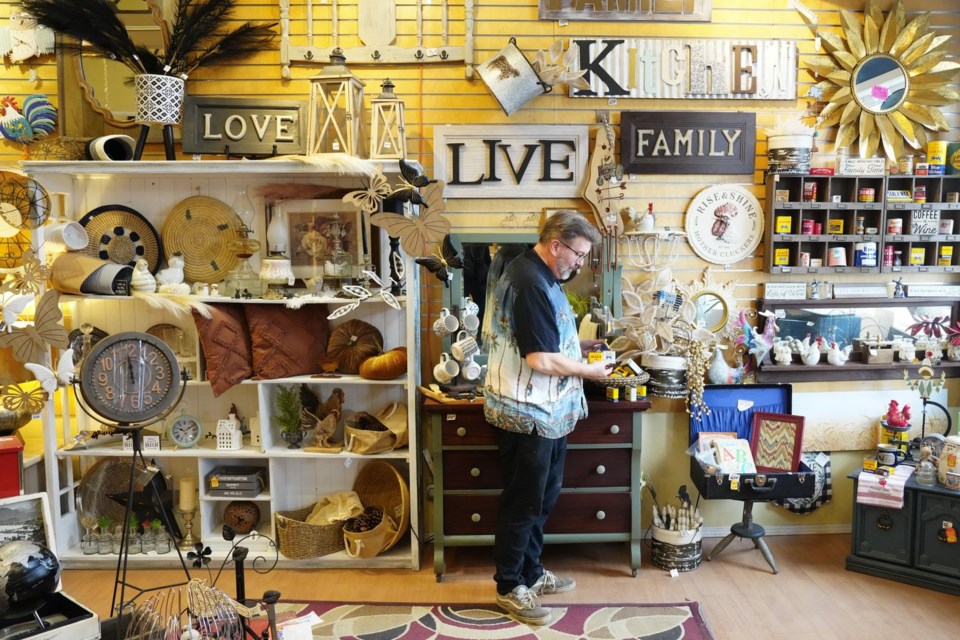MOOSE JAW — The underground tunnels in Canada’s most notorious city have always been open to Americans, including rumoured hotshot gangsters – and they want to keep it that way.
The Tunnels of Moose Jaw, along with other businesses in the city of roughly 35,000 people west of Regina, say they’re in line with a new campaign to welcome Canada’s southern neighbours at a time when tariffs have pushed elbows up.
It’s not personal, it’s just business.
“It’s typical of Moose Jaw, this open arms approach,” said Bobby Hill, general manager at the tunnels, in a recent interview.
“We historically have been known as The Friendly City.”
Mayor James Murdock launched the campaign in March, using U.S. President Donald Trump’s tariffs as an opportunity to welcome Americans and others to the city.
“Forget about annexation, come for relaxation,” Murdock says in a cheeky promotional video.
The mayor, who was not available for an interview, has said the city is concerned about tariffs and pointed out the U.S. dollar is “trumping” Canada’s, allowing Americans to stretch their dollars further.
Business owners say Canadians can take advantage of the savings by not spending their money down south.
At the tunnels, visitors are taken through a depiction of the 1920s, where bootleggers, gamblers and gangsters run illegal activities underground.
Urban legend says Al Capone, the notorious Chicago mobster, frequented Moose Jaw during Prohibition. But there is no definitive proof he ever came to the city.
Hill said summer is the busiest time for the tunnels, which see about 70,000 patrons a year. About 20 per cent of visitors are American.
“I’m not too sure how (the tariffs) will really impact our business,” Hill said.
“We do hope that Canadians will start to think about domestic travel a little bit more, but we don’t want to forget about our American friends."
Next door to the tunnels, Mike Thul runs the Past Times Old Time Photography and Gifts store.
Visitors come for photoshoots and dress up in 1920s clothing, including flapper dresses, fedoras, fans, cigarettes and tommy guns.
“You read about Al Capone. He wasn’t a good person and here we are promoting that," Thul joked.
"But I guess it’s working for us. Got to cash in somehow."
He said he’s heard from friends and family who plan to avoid the United States this summer.
“I do see it as a benefit. I also think more Americans will come here,” Thul said.
Moose Jaw recently hosted the BKT World Men's Curling Championship, which drew in thousands of spectators from across the globe.
“They were spending,” Thul said of the Americans who visited.
But the trade dispute may have tangible effects on other businesses.
Yvette Moore, the owner of Yvette Moore Gallery, said tariffs might push up frame prices, but it hasn’t yet been a problem.
“I’ve been surprised with the sales we’ve had in the last few months,” Moore said.
Crystal Milburn from the Prairie Bee Meadery said tariffs may eventually affect the company’s giftware and bottle caps.
She also has concerns about consumer spending should Canada and the U.S. go into a recession.
“I tend to be a pretty optimistic person. I like to think that we’re going to find a way through no matter what happens,” Milburn said.
She said there’s a difference between Americans and the Trump administration.
“Your average American on the street isn’t the one causing the problems,” Milburn said. “We absolutely want to see you, we want you to visit, we want you to come and get to know Canada as Canada.”
This report by The Canadian Press was first published May 10, 2025.
Jeremy Simes, The Canadian Press



